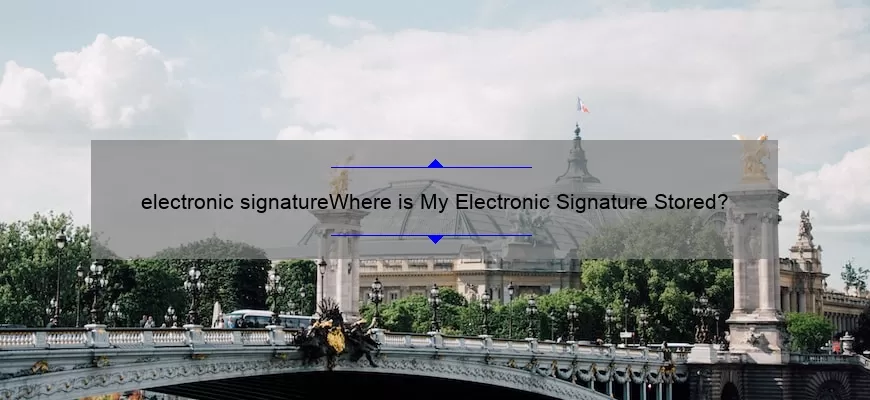Where is my Electronic Signature Stored?
The short answer to where your electronic signature is stored is that it depends on the service provider. Generally speaking, there are two types of electronic signature systems: those that store the signature in the cloud, and those that store the signature locally on the device.
Cloud-based systems, such as DocuSign, store the signature in a secure database that is accessible by authorized personnel. This means that even if the device that the signature was created on is lost or stolen, the signature remains securely stored, making it easy to access and use.
On the other hand, local systems store the signature directly on the device that it was created on. This means that if the device is lost or stolen, the signature is also lost. The advantage of local systems is that it is easier for the user to access and use.
What are the Advantages of Using an Electronic Signature?
There are many advantages to using an electronic signature over a traditional, handwritten signature. While traditional signatures provide a physical proof of agreement, the use of an electronic signature can reduce paperwork and make the process of legally binding agreements faster and more efficient.
One of the most important advantages of using an electronic signature is that it can be used to quickly and easily complete a variety of legal documents. This means that businesses can save time by eliminating the need to print, sign, scan, and send documents back and forth. Electronic signatures can also be used to sign contracts, forms, and other documents, providing a secure and legally binding agreement without the need for physical paperwork.
Another advantage of electronic signatures is that they are more secure than traditional methods. Electronic signatures are encrypted, meaning that they are difficult to forge or alter. This makes them
How Secure is an Electronic Signature?
When it comes to signing documents, electronic signatures offer a secure and convenient alternative to physical signatures. Unlike physical signatures, which can be forged or tampered with, electronic signatures are protected by encryption and other security measures, making them difficult to hack or manipulate.
As with any digital technology, the security of electronic signatures depends on the particular system that is used. For example, some electronic signature services, like Adobe Sign, are built on the same security protocols used by banks and other financial institutions, ensuring that your documents are safe and secure. These services also allow for two-factor authentication when signing documents, which adds an extra layer of security.
In addition to these measures, some electronic signature systems use biometric authentication, such as fingerprint or facial recognition, to make sure that only the signer can access the document. This
What Options Exist for Storing Electronic Signatures?
Today, electronic signatures are increasingly popular in business and consumer transactions alike. But what options exist for storing these digital signatures?
The most common storage option for electronic signatures is to keep them on the originating device. This could be a laptop, tablet, or smartphone, for example. This method of storage is popular because it’s convenient and straightforward. It also allows the signature to be used again in the future if needed.
Another option is to store electronic signatures in the cloud. This allows the signature to be accessed from any location, which can be very useful in certain circumstances. However, there are potential security risks associated with storing data in the cloud, and it’s important to be aware of them and take appropriate steps to mitigate them.
A third option for storing digital signatures is to use a secure server. This is






